English Edition

- By CNI
- Category: English Section
- Hits: 865
CNI News
15 July 2023
A bomb blast took place in front of Zwe Htet gold shop in Myoma Market in No.2 Ward in Lashio on 15th July, which injured over 10 people, said locals.
Two men came on a motorcycle and parked the motorcycle in front of Zwe Htet gold shop and left. Soon after that, a bomb placed in the motorcycle exploded.
six men and six women were injured due to the explosion.
Currently, the 2 people who detonated the motorcycle bomb have not been arrested reportedly.
The two men who detonated the bomb were PDFs, said local residents and the Shan State Police Force.
However, the PDF groups active in Shan State (northern) have not issued any statement as yet in relation to the bomb blast. Not published yet.

- By CNI
- Category: English Section
- Hits: 813
CNI News
15 July 2023
There are reviews and discussions among political community and international diplomats whether the people of Myanmar are ready to adopt the democratic system. It has only been a few years since the democratic system was implemented in Myanmar and the people still need to know the standards of democracy, said some politicians.
Politicians are more responsible to make the people know the rules of democracy, said U Ye Tun, Myanmar political analyst to CNI News.
" A political system, especially a constitution - how should a constitution be?. It needs to have fewer flaws. What I mean is whether a constitution possibly encourages separatism or unity. And to what extent will give autonomy and self-selection to choose their governments to the units involved. They are generally decided by those who are skillful in politics and political parties. So, it's important how much the people believe in the organization or the party that will decide. What I want to say is, as a matter of fact, most of the people don't understand clearly how the constitution works and its effectiveness. If a party that they believe supports or presents something, they will also support. So, politicians are more responsible." he said.
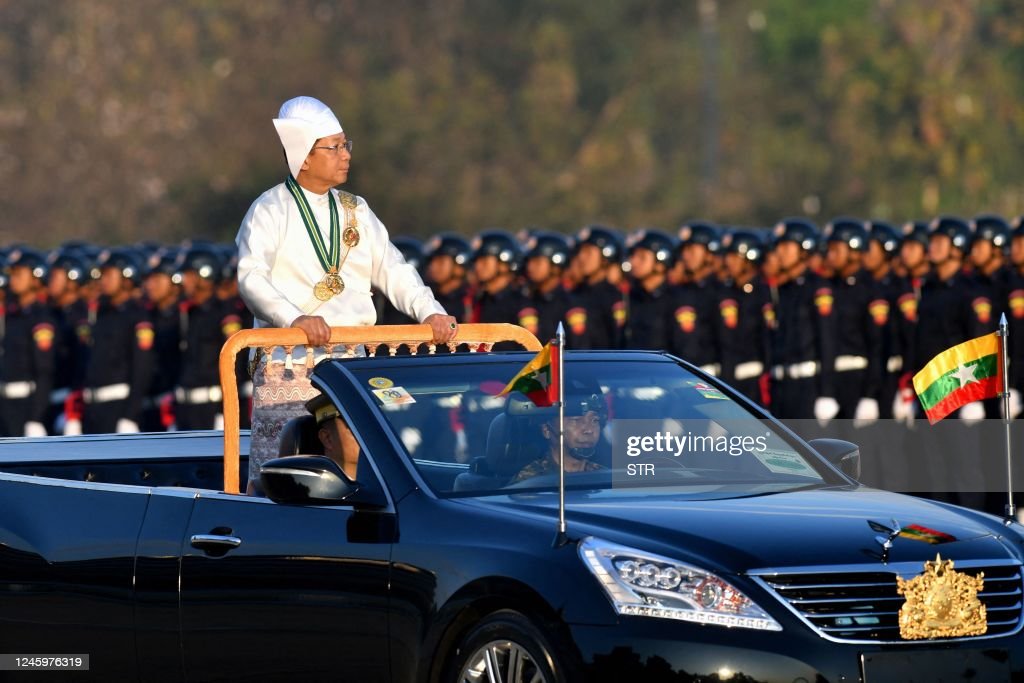
Sr-Gen Min Aung Hlaing
Although the democratic system was implemented in 2010, democracy was destroyed because the Tatmadaw took power in 2021, some people pointed out. However, he was implementing and adopting democracy, said often Sr-Gen Min Aung Hlaing.
Most of the people don't know the rules of democracy that the people must abide by, said U Li Paw Reh, chairman of Lisu National Development Party(Dulei Party), to CNI News.
" Our public still doesn't understand the rules of democracy, that I dare say. Democracy has its rules.It doesn't mean absolute freedom. Everyone has to abstain from making others go into trouble or embarrass others in a democracy. To tell you frankly, our democracy was fledgling. Many people think that they can do what they like,"he said.
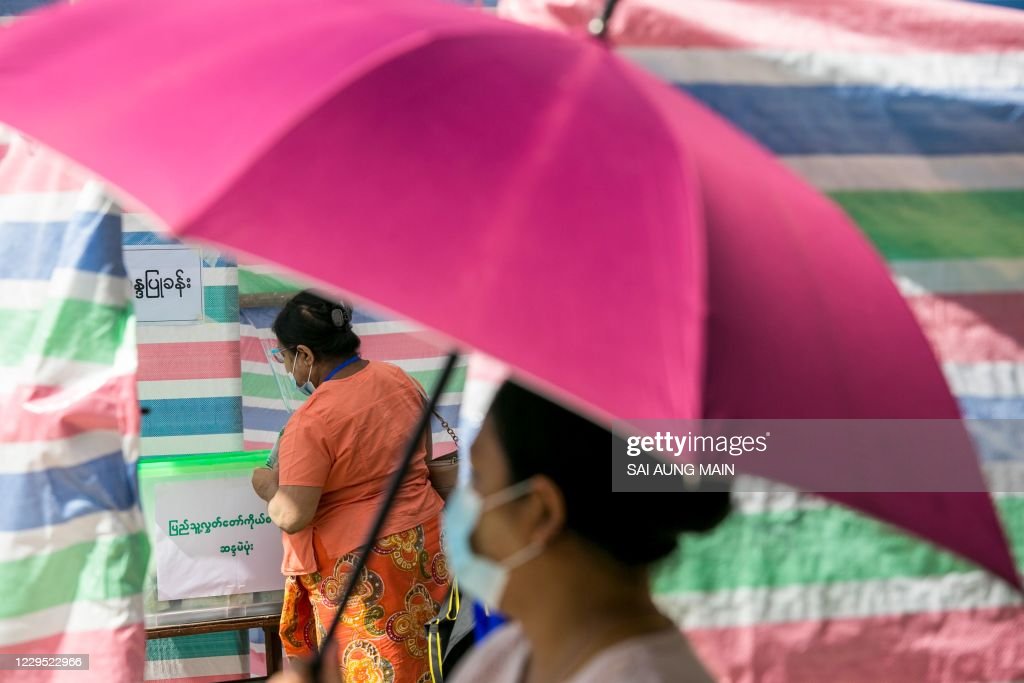
casting ballots in an election
The fact that it is based on a multi-party democratic system is included in the 2008 Constitution. Hluttaws are formed with elected representatives and executive power can be applied.
According to the multi party democratic system, 2010 general election, 2012 by-election, 2015 general election, 2017 by-election and 2020 general election were held in Myanmar.

In Korea, foreign workers, including Myanmar, are restricted from working outside designated region.
- By CNI
- Category: English Section
- Hits: 1275
CNI News
15 July 2023
South Korea will apply a policy that foreign workers, including Myanmar, will be restricted from working outside the designated regions starting from September, said the people helping migrant workers in South Korea.
In the past, foreign workers were able to work in any regions in South Korea if they were matched with their documents.
While most of foreign workers tend to seek jobs in cities only anymore, factories in remote areas are facing with a scarcity of workers. So, foreign workers have been restricted like that reportedly.
Foreign workers are finding it difficult due to the restriction, said Ko Khant Ne Kyi, in charge of the Se Center for Supporting Migrants and Migrates in Busan to CNI News.
"Even If you are allowed to change the worksite, you can't work at the places outside the city or region where your company is located. You must work at the place designated whether you are satisfied or not. So, there will probably be rights violations. Although some workers left current jobs because they want to go to better places, those who are really difficult to go on working at the current place suffer more." he said.
In the past, a worker had to secretly give the reason why he wanted to change the worksite to the new employer and according to the restriction, a worker must give the reason why he wants to change the worksite to the new employer reportedly.

A crowded subway station in Seoul
Due to political instabilities in Myanmar since 2021, Myanmar people have been going abroad for jobs and further studies than in the past and the number of Myanmar people who want to go to South Korea has increased. Currently, Myanmar people studying Korean have become more than pre-Covid period and those who will go to work and those who will go to work, doing further studies have increased reportedly.
" Currently, many people are interested in further studies in South Korea and because South Korea's EPS (Employment Permit System) has called more people from Myanmar, many people have left for South Korea. Like in the past, if the youths could go to the university, they might not go abroad. Due to political instability, those who want to go abroad have increased since 2021." said an official from the Royal Korean Language Center.
Myanmar citizens leave for South Korea to work through agencies or with their own plans and most of Myanmar citizens are working in Seoul, Incheon and Busan reportedly.

- By CNI
- Category: English Section
- Hits: 700
CNI News
15 July 2023
Although violences have decreased, they go on existing and there are still requirements to fully carry out for the stability, peace and rule of law, said Sr-Gen Min Aung Hlaing, chairman of the State Administrative Council(SAC).
He said as above at the Union Government Meeting held on 13th July.
The SAC must carry out for the peace, stability and rule of law and many innocent people, government employees and monks or religious people were killed between 2021 and 2022. So,in relation to the state of emergency, because the SAC needed to go on carrying out, he had clearly said to renew the state of emergency, said Chairman of the SAC.
"Terrorists conducted 489 explosions and 782 people were killed up to 11th July this year. Although violences have decreased, they go on taking place. There are requirements to fully carry out for the peace, stability and rule of law." he said.
Among the violence incidents, the worst incidents are taking place in Sagaing Region, Chin State and Kayah State. So, They needed to carry out more for the public security, he added.
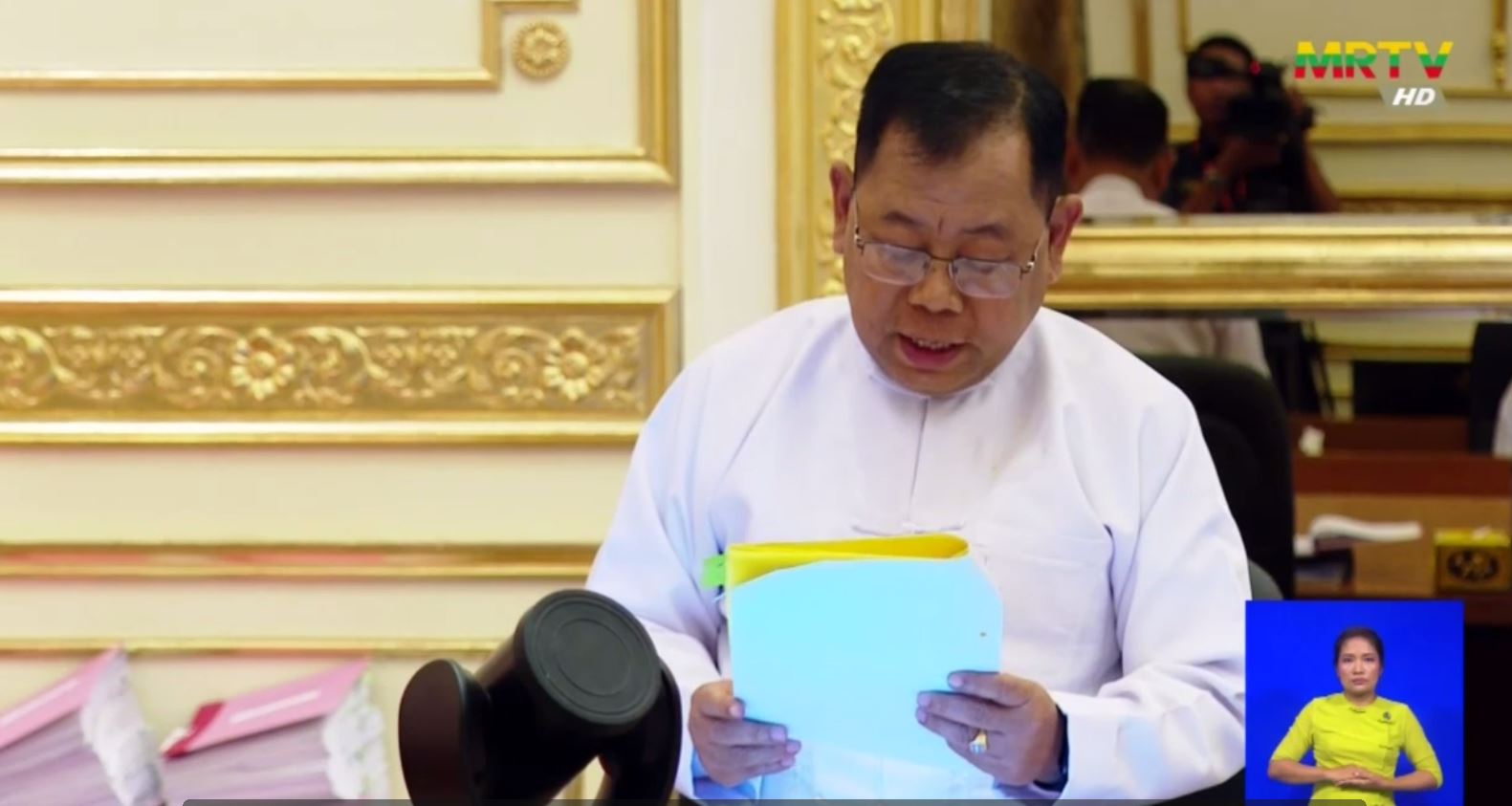
“When the SAC had renewed the six months to the state of emergency two years after it took the responsibility of the State, it laid down the five processes to be carry out and has carried out, which must be urgently conducted and the government has to implement them, said Chairman of the SAC, adding that among the processes, the most important one was that they must carry out emphatically to fully achieve stability, peace and rule of law.
Among the processes, the last one was that when the provisions for the period of emergency have been carried out completely, a free and fair general election must be held again in accord with the 2008 Constitution and the responsibility of the State must be handed over to the winning party in accord with the democratic standards. To do so, first process must be carried out emphatically” he said.
They can't carry out the state building work, the state development work and the state peace and stability work without national income and if the economy was not good, crime would increase. Some violence incidents are kidnapping and asking money and family members were included in some violence incidents, he said.
The SAC renewed anymore of six months to the state of emergency on 31st January 2023 according to the Section 425 after a meeting of the National Defense and Security Council was held.
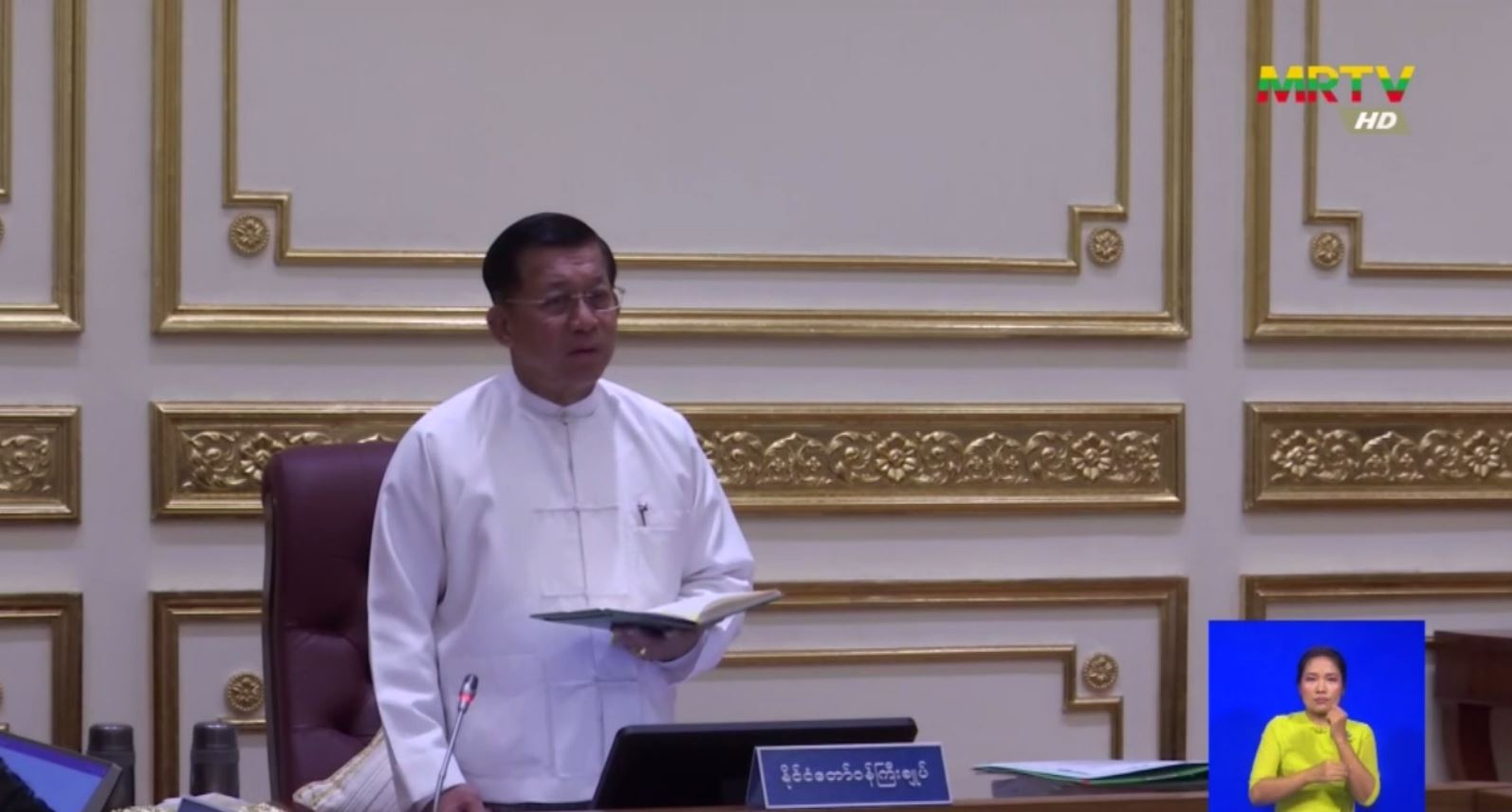
As the state of emergency was extended by six months on 31st January 2023 and it will expire on 31st July 2023. A meeting of the National Defense and Security Council is called on 1st August and whether the SAC will renew anymore of 6 months or not must be decided at the meeting. Normally, the emergency period can be extended by two times with 6 months for one time according to the Section 425.
According to the speech of Chairman of the SAC who said that there are still violences, six months will probably extended to the state of emergency, said politicians.

- By CNI
- Category: English Section
- Hits: 755
CNI News
14 July 2023
New trips were being planned to attract Russian tourists in order that they would come to Myanmar, said U Zeyar Myo Aung, deputy director general, the ministry of hotel and tourism to CNI News.
New tours - existing trips are created anymore, are intended to make Russian tourists like, he said.
"Package tours have been arranged for Russian tourists. Among existing trips, the trips that Russian tourists like are beach areas. There are existing trips such as Yangon-Mandalay-Bagan-Innlay-Ngapali. These trips are put together as a package tour. And then, there are Naypyidaw-Bagan-Mandalay-Innlay, Ngapali trip or Ngwe Saung - Chaungtha.trip. We have matched existing trips with beaches that Russians like. We mean it is created as a new package. Russian tourists very much like beaches. Because it's always cold in their country, they find it difficult to go to beaches. But it's hot in Myanmar. so, it's convenient for them." he said
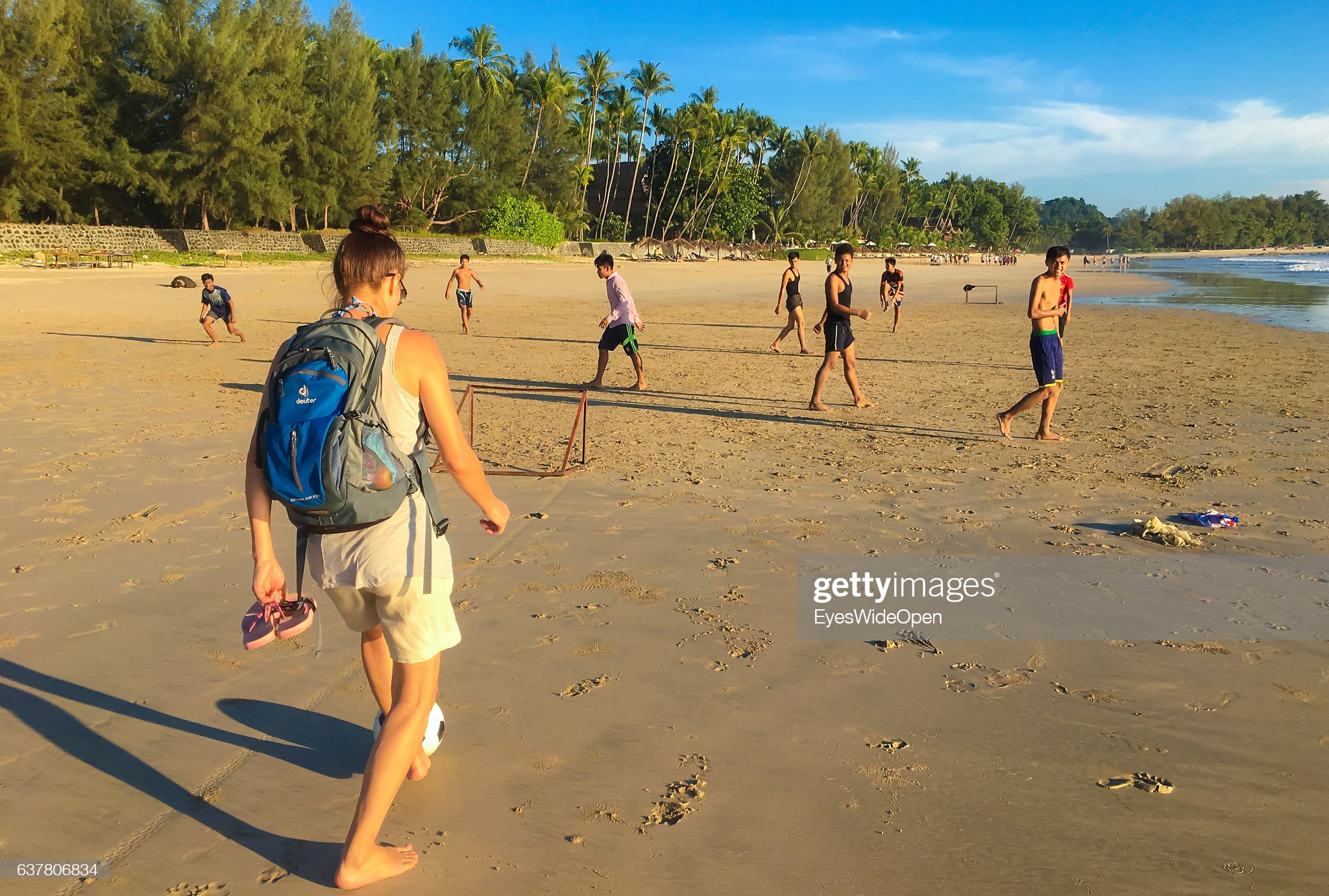
tourists at the Ngapali Beach
If direct airlines are arranged, Russian tourists will be able to come to Myanmar more conveniently. Relevant departments are arranging to keep direct flights reportedly. The Ministry of Hotel and Tourism has expected that more Russian tourists will come if direct flights are implemented in the open season this year.
As the new trips are created for Russian tourists, the new trips for other tourists should be arranged as well, said U Zaw Zaw, chairman of Northern Shan State Hotel Owners Association.
Moreover, if prices are designated by the ministry for tourists depending on their trips and hotels which they would stay, it will be uniform for all, he said.
The ministry hotel and tourism should designate which hotel how much must ask foreigners, he added.

tourists that visited the Shwedagon Pagoda
When the trips are arranged for tourists, Their security should be mainly arranged, some people suggested. 0.233 million tourists, including Russian tourists entered Myanmar in 2022.
In comparison with 2021, it increased by 78 percent, according to the Union Minister for hotel and tourism In 2023, over 400,000 tourists entered Myanmar during the first five months and many tourists from China, Thailand, South Korea, Japan, India, Vietnam, USA, Malaysia,Singapore and Taiwan entered reportedly.

- By CNI
- Category: English Section
- Hits: 604
CNI News
14 July 2023
Local onion price increased with one viss at 2,300 Kyat in May and June when a lot of onions were bought from abroad, but currenet price is just 1,500 Kyat to 1,800 a viss, according to the onion wholesale markets from Pakokku and Myingyan.
Because the traders who will export bought onion reducing 100 Kyat for a viss than before, onion price has decreased a little reportedly.
Moreover, because Monywa peasants came and sold their onions that they had stored for long according to their regional instability, onion price has decreased, said U Aung Myint, an onion trader from Myingyan Township to CNI News.
" 100 to 120 Kyat a viss has decreased because are their roads not good or don't they make much profit in the market there, I'm not sure. And traders who export also reduce price a little. Exporters are buying onions now as well. When they reduce, we have to reduce. They regularly bought a viss at 2,100 Kyat to 2150 before. But now they only pay 1,9500 Kyat to 2,000 Kyat. May be it's because Monywa peasants are selling a lot. Sellers from Monywa didn't use to sell their onions at the time of the year. They are forced to sell by their regional instability."said U Aung Myint.
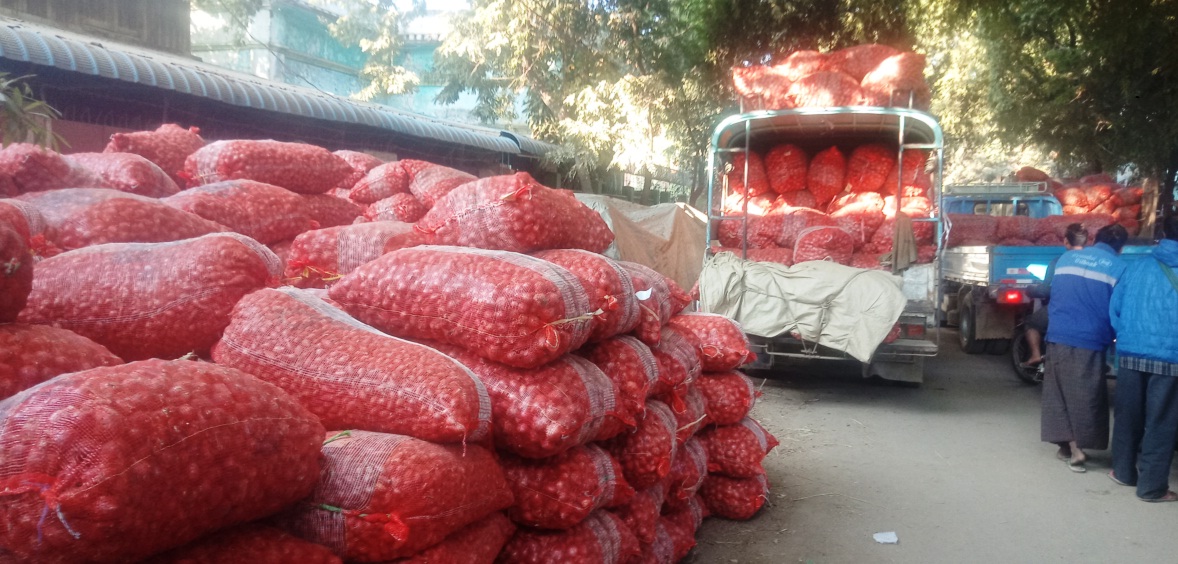
bags of onions coming to a commodity depot
Onion price has decreased a little in the wholesale market, but has not decreased in the retail market because retailers had bought onions when the price was going up. Onion price is just 1,500 to 1,800 Kyat a viss in the Bayintnaung Wholesale Market in Yangon.
However, onion price may go up again because buyers from abroad tend to buy onions a lot from July on. Traders have not stored a lot of onion this year and a lot of onions are only in the hands of peasants. So, if peasants regulate their selling, it may benefit them, said an onion trader to CNI News.
"Normally, July, August and September are the months that the onion price tend to go up. Last year, the price was going up in August, September and October. In these months, traders from Vietnam came and bought onions. They bought a viss at over 2,000 Kyat to over 3,000 Kyat. But the price is related to exporting and export channels. Moreover, it depends on the financial markets a lot. This year, when urban traders would buy and store in their warehouses, onion prices were 1,500,1,600, 1,700, 1,800 to 2,000 Kyat. So, there are not onions in the urban warehouses. That's why if peasants cleverly sell their onions, they'll get paid much more money" he said.
Among the rest of onions, there are almost no more onions from Myitthar and Taungdwin Gyi and there are only onions from Monywa, Pakokku and Myingyan.
Traders have only one third of onions and two third are in the hands of peasants, said traders.

- By CNI
- Category: English Section
- Hits: 570
CNI News
14 July 2023
As violence becomes involved in the armed conflicts taking place in Myanmar, the people in the political circle are reviewing and discussing in relation to how the violence should be stopped.
The current armed conflicts have been widely spreading through out the country, resulting in civilian deaths, house fire and more internally displaced persons.
Battles have been more severely taking place since 2021 and the people are facing with various difficulties. So, political elements and armed organizations should solve the problem, taking the people's difficulties into account, said U Tun Aung Kyaw, a Rakhine politician to CNI News.
"In my opinion, when the two sides try to solve a problem between them, the ability to solve the problem mainly depends on how generous one can be to the other. Stakeholders have been trying to solve the problem, maintaining weapons since 1948 and these armed conflicts that arose with the independence have been over 70 years. The stakeholders understand that the problem can't be solved in this way, we believe.The public has been in great trouble already.The battles after 2021 have been very severe and the public is suffering the most intense and painful pain throughout history and they are experiencing damage and loss. So, responsible stakeholders, political elements and armed forces all urgently need to solve the problem in the best way, empathizing with the people" he said.
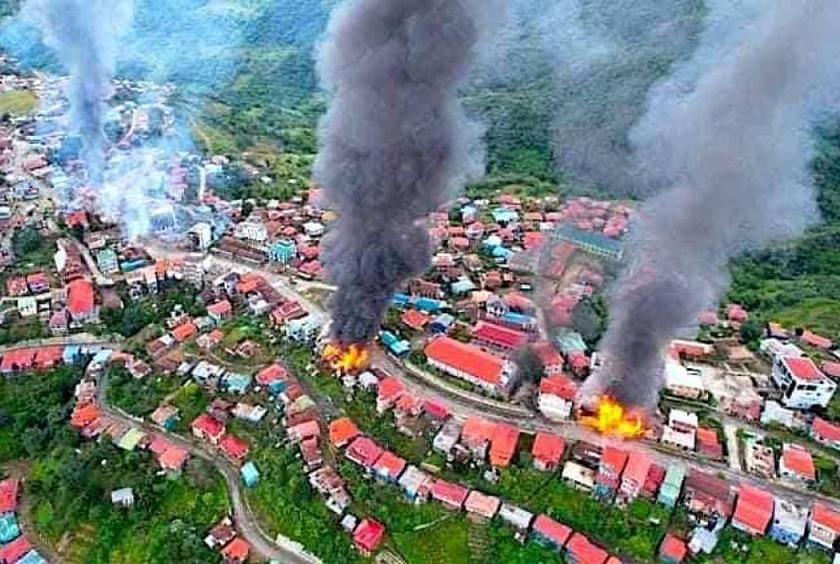
houses were being in flame
The UN Security Council's resolution on Myanmar on 21st December 2022 includes a fact that violence must be stopped.
During the past over two years since 1st February 2021, there were more than 8,600 civilian deaths due to armed conflicts, said ISP Myanmar.
There have been the laws relating to violence and if violence is handled with these laws, violence can be reduced, said U Thein Tun Oo, director of the Thayninga Institute for Strategic Studies.
"There have been the laws relating to violence and there also are methods relating to how to handle it. If violence is systematically handled in this way, violence can be reduced. For the time being, the SAC (State Administrative Council) is dealing with violence in a very soft manner. So, it can't go at a higher speed to eradicate the violence. We need to be able to cut everything that is encouraging and supporting violence. And those who are related to violence must be taken action against in accord with the law. If we can carry out main points, it will be easy to control violence" he said.
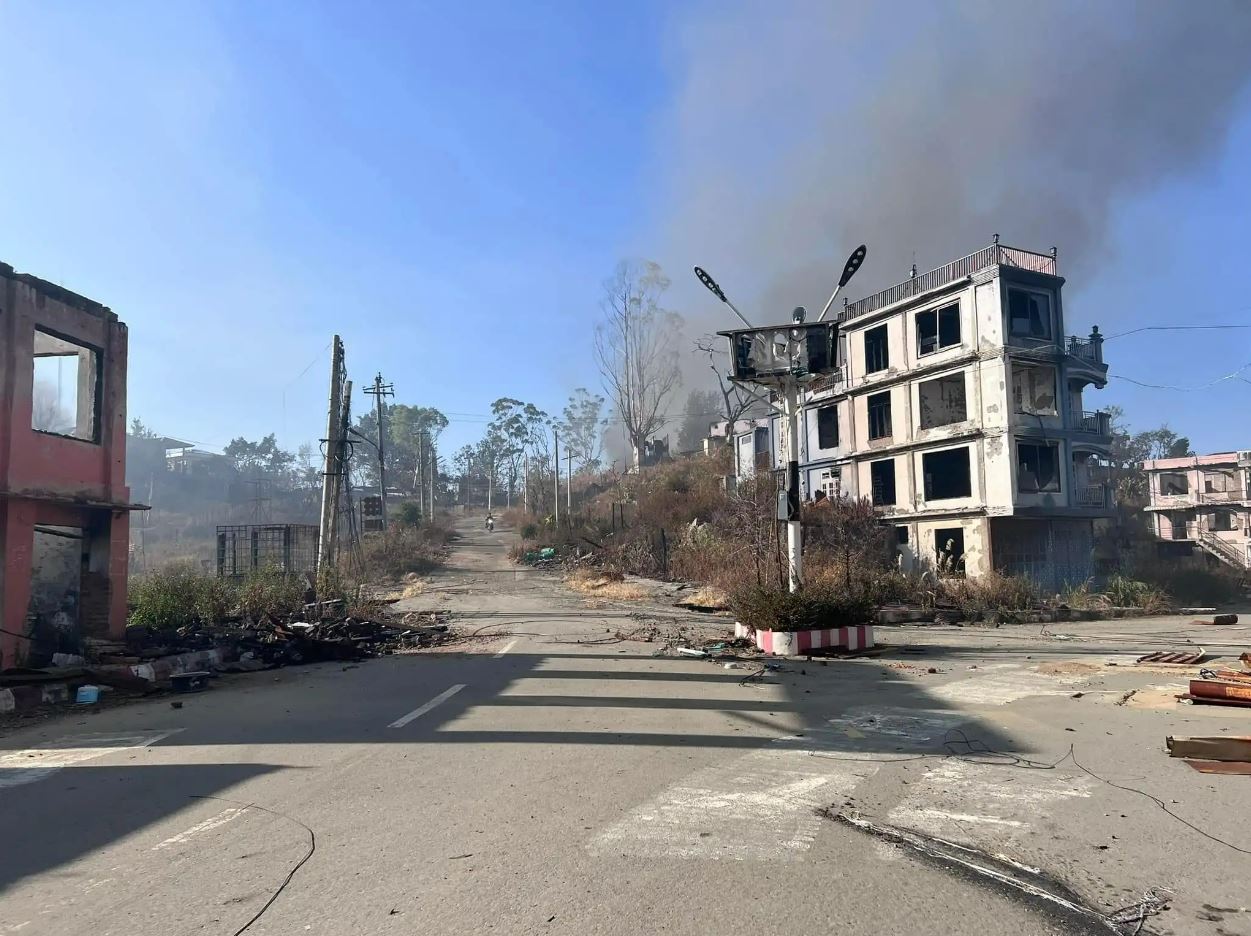
ruined Htantalan town
Over 740 civilians were killed during first five months of 2023 and these deaths are the most since 1st February, 2021, according to ISP Myanmar. NUG/PDF and EAOs
are fighting to topple down the Tatmadaw and the Tatmadaw is putting down the armed attacks, saying it is for the stability of the State.
During the armed conflicts, so many civilians were killed, arrested and bullied. Moreover, their houses were set fire as well reportedly.

- By CNI
- Category: English Section
- Hits: 671
CNI News
13 July 2023
Although there are a lot of Chinese investments in Rakhine State, they do not benefit the Rakhine public and Rakhine State, said Rakhine politicians and Rakhine public.
Chinese investment has reached not only regions but also states, but the people have not benefited from the investment, said U Tun Aung Kyaw, a Rakhine politician to CNI News.
" Of all the investment in Rakhine State, the main is Chinese investment, but in relation with the investment, Rakhine people's expectations were not fully met. Although they expected that foreign investment companies would create job opportunities for them, the companies have not benefited them effectively up to now” he said.
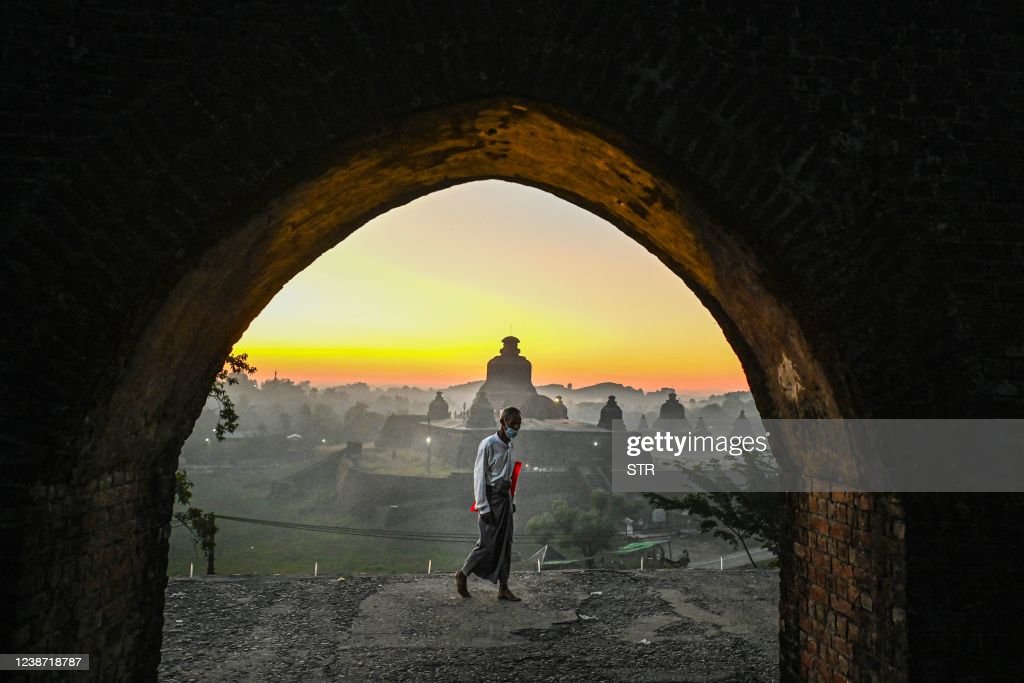
beauty of Mrauk U in Rakhine State
Chinese investment projects don't take into account job opportunities for Rakhine People, said U Tun Aung Kyaw.
" Another sad thing is that these companies took their people for main bottom jobs such as gatekeepers, drivers, cooks and so on. So, Rakhine State obviously doesn't benefit from these companies." he said to CNI News.
There are Chinese projects in Rakhine State, but human rights of Rakhine people there are being violated, said Ko Kyaw Min Khaing, a local from Rathedaung to CNI News.
" Up to now, most Chinese investments haven't benefited Rakhine people at all. Chinese investment is directly related to the Chinese government. And there are human rights violations against the people. If you ask me whether I like investment or not, I like it, but I don't like the way of exploiting the locals after violating human rights." he said.
China is building the Kyauk Phyu deep water port, gas and oil pipeline and special economic zone in Rakhine State.
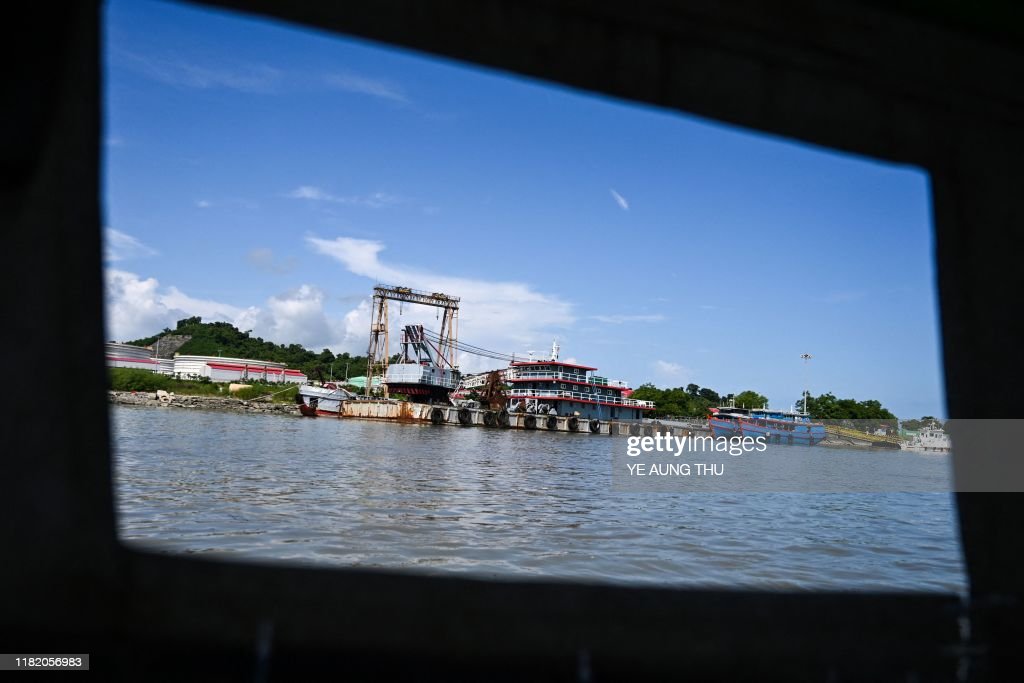
Kyauk Phyu Deep Water Port Project in Rakhine State
" Locals who make a living by catching fish were prevented. They must be allowed to catch fish. And land lots were seized and landlords whose land lots were seized must be given other land lots. A country needs investment to get on. Due to investment, it's necessary that locals are not victimized" said Ko Kyaw Min Khaing.
Because Chinese investment doesn't benefit local people, he doesn't believe in Chinese, said U Maung Thar Sein, an elder of the town from Sittwe Township. " When we are trying a state of our own in Rakhine State, we need to protect the rest of our natural resources unitedly so that they won't reach into the hands of the Chinese," he said to CNI News.
The Chinese government will carry out the wind power projects in Ann, Thandwe and Gwa townships in Rakhine State, said in the contract on which Myanmar Ministry of Electricity and Chinese company signed on 1st March, 2023. Moreover, Kaladan River Project, an investment of India is in Rakhine State,too.Mainly, Rakhine State does border trade with Bangladesh.

- By CNI
- Category: English Section
- Hits: 754
CNI News
13 July 2023
According to India's demand, 100 tons of avocados will be exported to India in coming November, said Myanmar Avocado Growers and Sellers Association.
Myanmar avocados were shown at the food and hotel fair held in Singapore in April.
There as India liked Myanmar avocados, it signed a contract to buy the avocados in the coming avocado season, said U Kyaw Thu, vice chairman of Myanmar Fruit, Flower and Vegetable Producer and Exporter Association, to CNI News.
"We went and showed our avocados at the Food and Hotel Asia. Among those who came and saw there, India liked ours and signed a contract to buy 100 tons. But they said that they would buy anymore if they liked." he said.
Although Myanmar avocados were exported to India through Tamu border trade in the past, they will be exported there through the maritime trade reportedly.
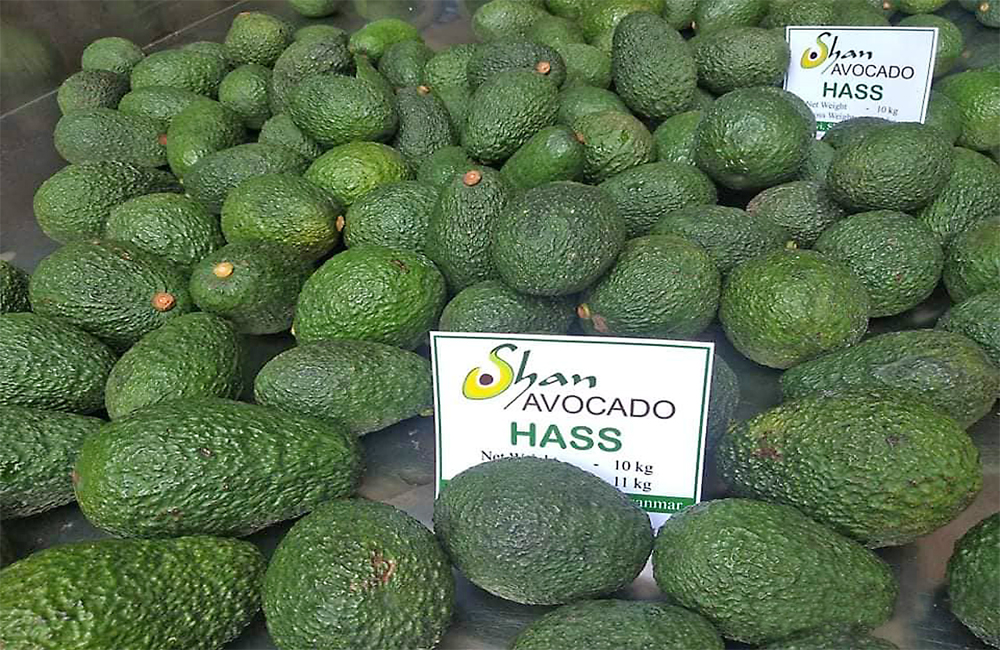
Myanmar avocados at a fair
100 tons that would be bought by India were few by amount, but it was fruitful to the avocado growers, said Khun Arkar, chairman of Kyauk Talone Township Avocado Association in Southern Shan State, to CNI News.
"Avocado is so plentiful that the people in local can't eat up them. So, only when they can be exported will be convenient" he said.
Myanmar avocados are being exported to China, Thailand, Malaysia, Singapore, India, France and Netherland. But because Myanmar avocados are being exported to china and Thailand through illegal routes, they don't make much profit, said U Kyaw Thu to CNI News.
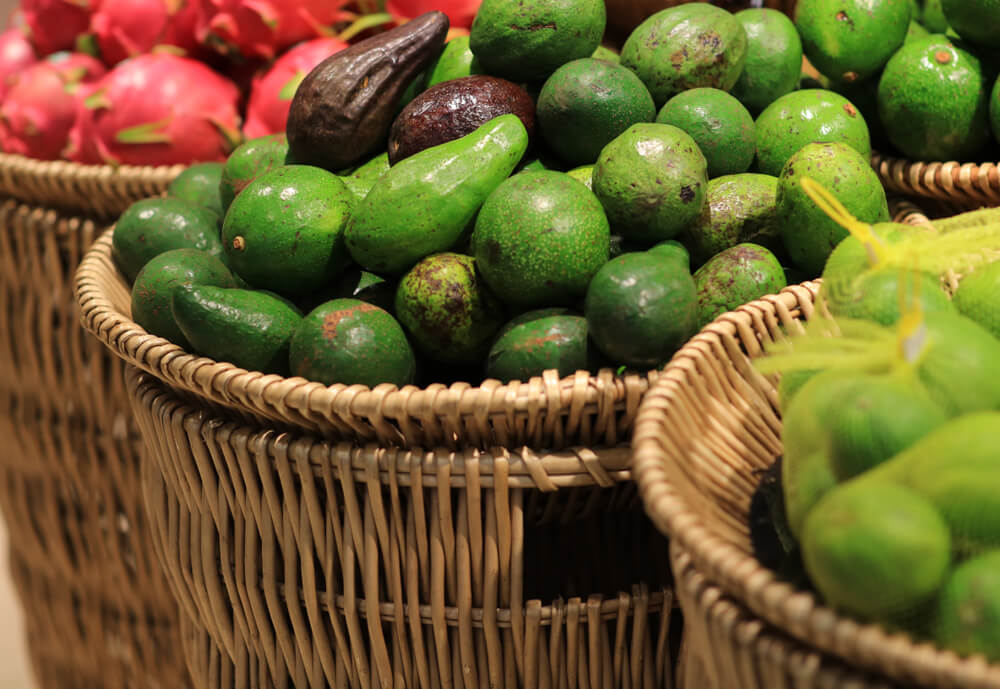
avocados
" If we can directly export our avocados to foreign countries such as India and Singapore, avocado market will be better and income earning from avocado will be much more. Moreover, we can sell avocados at higher price. When we export avocados to Thailand, because we haven't got legal trade permit, we sort of smuggle into there, so we can sell one kilo of avocado at 30 Bahts only. If we can officially trade, we can sell at 60 or 90 Bahts" he said.
Acres of Myanmar avocado cultivation have increased year after year and its yield also has increased yearly. Avocado is mainly grown in Shan State, and Pyin Oo Lwin, Mandalay Region. And it is also grown in Chin and Kayah States. But because there are no stability in Chin and Kayah States, it is not easy to pick avocado, said peasants.



